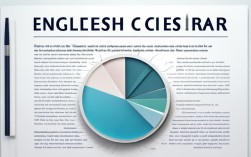Writing an effective English essay on taxation requires a blend of language proficiency, subject knowledge, and structured argumentation. Whether for academic exams, professional reports, or IELTS/TOEFL preparation, mastering this skill can significantly enhance your performance. Below are key techniques, supplemented with the latest global tax data to strengthen your arguments.

Understanding the Essay Structure
A well-organized essay ensures clarity and coherence. Follow this framework:
Introduction
- Start with a hook (e.g., a surprising statistic or quote).
- Provide background on taxation (e.g., "Taxation is a cornerstone of modern economies, funding public services and infrastructure").
- State your thesis (e.g., "This essay examines the role of progressive taxation in reducing income inequality").
Body Paragraphs
- Paragraph 1: Define key terms (e.g., direct vs. indirect taxes).
- Paragraph 2: Present arguments with evidence (use recent data).
- Paragraph 3: Discuss counterarguments and refute them logically.
Conclusion
- Restate the thesis and summarize key points.
- End with a forward-looking statement (e.g., "Policymakers must balance tax efficiency with equity").
Incorporating Latest Tax Data
Using current statistics adds credibility. Below are 2023-2024 figures from authoritative sources:
Global Corporate Tax Rates (2024)
| Country | Corporate Tax Rate (%) | Source |
|---|---|---|
| United States | 21% | IRS (2024) |
| Germany | 9% | Federal Ministry of Finance |
| Singapore | 17% | Inland Revenue Authority (IRAS) |
| India | 25% | Central Board of Direct Taxes |
(Source: IRS, IRAS, national treasury reports)

Top 5 Countries with Highest VAT/GST Rates (2024)
- Hungary – 27%
- Sweden – 25%
- Denmark – 25%
- Norway – 25%
- Croatia – 25%
(Source: European Commission, OECD Tax Database)
U.S. Individual Income Tax Brackets (2024)
| Tax Rate (%) | Single Filers ($) | Married Filing Jointly ($) |
|---|---|---|
| 10% | ≤ $11,600 | ≤ $23,200 |
| 12% | $11,601–$47,150 | $23,201–$94,300 |
| 22% | $47,151–$100,525 | $94,301–$201,050 |
(Source: Internal Revenue Service)
Vocabulary and Phrases for Taxation Essays
Enhance your lexical resource with these terms:

- Tax Evasion vs. Avoidance: Legal (avoidance) vs. illegal (evasion) minimization of taxes.
- Progressive Taxation: Higher earners pay a larger percentage.
- Regressive Tax: Impacts low-income groups disproportionately (e.g., sales tax).
- Fiscal Policy: Government spending and taxation to influence the economy.
Example sentence:
"Progressive taxation, as seen in Scandinavian countries, mitigates wealth disparity by imposing higher rates on top earners."
Common Pitfalls to Avoid
- Overgeneralization: Avoid statements like "All taxes are unfair." Instead, cite specific cases (e.g., "Sales taxes disproportionately affect low-income households").
- Outdated Data: Always verify statistics. For instance, the U.S. corporate tax rate dropped from 35% to 21% in 2018 (Tax Cuts and Jobs Act).
- Weak Transitions: Use connectors like "Conversely," "Moreover," or "For instance."
Practice with Real-World Examples
Case Study: Ireland’s 12.5% Corporate Tax Rate
Ireland’s low rate attracted multinationals like Apple and Google, boosting GDP but drawing EU scrutiny for unfair competition. This illustrates the trade-off between tax competitiveness and revenue needs.
Quote to Use:
"In this world, nothing is certain except death and taxes." —Benjamin Franklin

Final Writing Tips
- Read Expert Analyses: The Tax Foundation and OECD publish annual reports.
- Practice Timed Essays: Allocate 5 minutes for outlining.
- Peer Review: Exchange essays for feedback on clarity and logic.
Taxation essays demand precision, but with structured arguments and up-to-date evidence, you can craft compelling content. Policymakers and educators alike must adapt to evolving fiscal landscapes—students who master this skill will stand out in academia and beyond.











